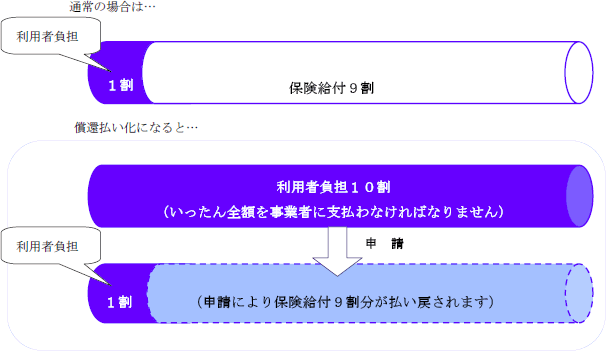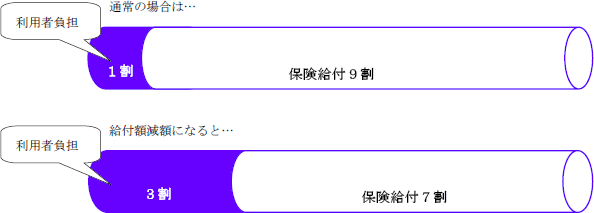- Yokohama-shi Top Page
- Health, Medical and Welfare
- Welfare and nursing care
- Welfare and Nursing Care for the Elderly
- Nursing care insurance
- About Long-term Care Insurance Premium
- If you are late for insurance premiums
Here's the text.
If you are late for insurance premiums
Last Updated January 22, 2020
Insurance premiums are an important source of funding for the expenses required for The Long-term Care Insurance services, so it is important to pay insurance premiums to maintain the long-term care insurance system.
Therefore, if insurance premiums have been delinquent for a long time, the following measures may be taken based on laws and regulations when using nursing care services in order to ensure fairness with those who pay insurance premiums. There is.
1 If you have not paid insurance premiums for more than one year from the due date ...
- If you do not pay insurance premiums for more than one year from the due date without special circumstances, such as when you are damaged by a disaster, you will usually pay 10%, 20% or 30% of the cost when using the nursing care service. You will have to pay the full amount once. This is referred to as "the change of Payment method (redemption payment)".
- Once paid, once you apply to the ward office, the insurance benefits will be refunded at a later date.

※The figure is an example of a 10% burden.
2 If you have not paid insurance premiums for more than one year and six months from the due date ...
- If you do not pay the premium for more than one year and six months from the due date, the payment of the reimbursed insurance benefits will be temporarily suspended.
- In addition, delinquent insurance premiums may be deducted from the suspended insurance benefits.

※The figure shows an example of a 10% burden.
3 If you have not paid insurance premiums for more than 2 years from the due date ...
Insurance premiums for those aged 65 and over cannot be paid due to prescription after two years have passed since the day after the dunning letter arrives (the date of the statute of limitations). If there is an insurance premium that can no longer be paid due to prescription, depending on the period, 30% of the out-of-pocket ratio is 10% or 20%, and 30% of the out-of-pocket ratio is 40% It will be. In addition, during this time, refunds of high-cost nursing care (care prevention) service costs and reduction of living expenses (stay expenses) and food expenses will not be received. At the same time, the out-of-pocket expenses during this period are not subject to the sum of the high-priced medical care and high-cost nursing care combined medical expenses system. This is called "reduction of benefits."

※The figure shows an example of a 10% burden.
4 Measures other than the above
● Seizure of property, etc.
Regardless of the period of nonpayment of insurance premiums or the use of nursing care services, we may seize property such as deposits and savings and life insurance as delinquent disposal stipulated by laws and regulations.
● Persons obliged to pay solidarity
If the payment method is normal collection, the spouse of the insured person and the head of the household are obliged to pay the premium jointly and severally according to the law. If the insured person is late for insurance premiums, the person obliged to pay solidarity may request insurance premiums or dispose of delinquent payments based on laws and regulations.
● When the second insured person has not paid medical insurance
If the second insured person (medical insurance member between the ages of 40 and 64) has not paid medical insurance premiums, some or all of the insurance benefits may be temporarily suspended in conjunction with the change in Payment method.
Inquiries to this page
Health and Social Welfare Bureau Senior Health and Welfare Department The Long-term Care Insurance Division
Telephone: 045-671-4254
Telephone: 045-671-4254
Fax: 045-550-3614
Email address: kf-kaigohoken@city.yokohama.jp
Page ID: 210-362-056







